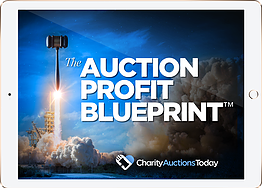DOWNLOAD The Auction Profit Blueprint
The 4 tools BIG organizations use every time to skyrocket auction profits!
The Step-By-Step Guide to stop leaving thousands on the table.
Learn what a donor relations manager can do for your organization. CharityAuctionsToday offers info on how this role can supercharge your donor outreach.

In the world of nonprofits, donor relations is key. It’s the lifeblood that keeps the organization running.
But who manages these crucial relationships?
Enter the donor relations manager. This role is pivotal in maintaining and enhancing relationships with donors.
Their responsibilities are vast and varied. They range from communicating with donors to planning appreciation events, and even managing donor databases.
Understanding the role of a donor relations manager can help nonprofits thrive. It can also provide insights for those considering a career in this field.
In this article, we’ll delve into the intricacies of what a donor relations manager does. We’ll explore their responsibilities, the skills they need, and why they’re so important to nonprofit organizations.
A donor relations manager is a vital team member in any nonprofit. Their main goal is to foster and strengthen donor relationships. They ensure that donors feel appreciated and informed about how their contributions make a difference.
This role requires more than just managing names in a database. It’s about creating meaningful connections that lead to ongoing support. By understanding donor preferences and aligning them with organizational goals, donor relations managers help sustain long-term engagement and build trust. Their work is crucial for the nonprofit’s financial health and mission success.
Donor relations managers handle various tasks that contribute to a nonprofit’s success. Their responsibilities can be diverse and demanding, requiring strategic thinking and attention to detail.
One crucial task is maintaining positive relationships with existing donors. They ensure timely communication and personalized interactions to make each donor feel valued. This includes sending thank-you notes and updates on project impacts.
They also develop and implement donor recognition programs, showcasing appreciation for the support provided. Recognizing donors publicly can lead to increased loyalty and future gifts. This recognition often involves planning appreciation events or special acknowledgments.
Another key responsibility is managing donor data effectively. This involves using CRM systems to track donor history, preferences, and interactions. Keeping accurate records ensures that all communications are relevant and personal.
Lastly, donor relations managers collaborate with other departments to ensure a cohesive approach to fundraising. They work with marketing teams to align messaging and coordinate campaigns effectively. This collaboration helps create a unified experience for donors across all touchpoints with the organization.
Having a dedicated donor relations manager is vital for a nonprofit’s sustainability. They play a critical role in nurturing the relationship between the organization and its supporters, which is essential for consistent funding.
The presence of a donor relations manager can significantly enhance donor retention. By building strong connections with donors, they encourage continued support and loyalty. This consistency can lead to increased lifetime donor value and more stable funding.
Moreover, donor relations managers help create a culture of gratitude and transparency. By ensuring donors feel appreciated and informed, they foster trust and credibility in the organization. This trust not only strengthens current relationships but also attracts new donors, amplifying the overall impact of fundraising efforts. Their expertise ensures that the nonprofit remains focused on maintaining and growing its donor base.
A donor relations manager must possess a unique blend of skills to succeed. Key among these is the ability to communicate effectively. Clear communication ensures that donors receive timely updates and feel engaged with the organization’s mission.
Interpersonal skills are equally important for managing relationships. A successful manager can empathize with donors and understand their motivations. This sensitivity helps tailor communications to each donor’s preferences and encourages ongoing support.
In addition to soft skills, a solid foundation in analytics and technology is crucial. Donor relations managers often rely on data-driven strategies to optimize engagement. Familiarity with donor management software enhances their ability to track and evaluate donor interactions.
Key Skills and Qualifications:
These competencies collectively contribute to a donor relations manager’s effectiveness and the overall success of the nonprofit’s fundraising strategies.
Donor relations managers play a pivotal role in boosting a nonprofit’s fundraising efforts. By forging strong connections with donors, they lay the groundwork for sustained generosity. Their strategies often lead to increased donations, ensuring vital projects receive much-needed funding.
Moreover, they work closely with other departments to align donor interests with organizational goals. This alignment fosters trust and encourages long-term donor engagement. Through personalized communication and thoughtful engagement, donor relations managers make significant contributions to the success of fundraising campaigns. Their efforts enhance donor loyalty and help secure the financial health of the organization.
Donor retention is crucial for the financial stability of nonprofits. It costs less to retain a donor than to acquire a new one. Donor relations managers focus on building strong relationships, ensuring donors feel valued and appreciated.
Building genuine connections with donors leads to lasting partnerships. This relationship-building nurtures trust, increasing the likelihood of recurring donations. A donor who feels connected to the cause is more likely to support the nonprofit’s mission over the long term. By prioritizing retention, organizations can maintain a steady stream of resources, allowing them to plan and execute their initiatives effectively.
Communication is at the heart of donor relations management. Managers ensure that communication with donors is clear, consistent, and meaningful. Personalized messages help donors feel appreciated and informed about how their contributions are making an impact.
Events play a vital role in donor engagement as well. Donor relations managers plan and execute events that honor and thank donors, fostering deeper connections. These events, such as appreciation dinners or exclusive tours, provide opportunities for direct interaction, making donors feel valued and integral to the organization’s mission. Events also serve as platforms for sharing success stories and showcasing the nonprofit’s achievements.
Evaluating the success of donor relations strategies is essential for ongoing improvement. Metrics such as donor retention rates, engagement levels, and feedback provide valuable insights. These metrics guide donor relations managers in refining approaches, ensuring that relationships are nurtured effectively, and sustaining the organization’s mission through continued support.
Technology plays a crucial role in modern donor relations management. Tools like donor databases and CRM systems help streamline communication and track donor interactions. These technologies enable donor relations managers to personalize outreach, analyze giving trends, and effectively engage donors, enhancing the overall donor experience and retention.
Prioritizing donor needs and preferences is vital for nonprofit success. A donor-centric approach strengthens ties, boosts retention, and enhances trust. By aligning organizational goals with donor interests, donor relations managers ensure sustainability and growth. Ultimately, their efforts create meaningful and lasting relationships that power nonprofit missions.
DOWNLOAD The Auction Profit Blueprint
The 4 tools BIG organizations use every time to skyrocket auction profits!
The Step-By-Step Guide to stop leaving thousands on the table.

